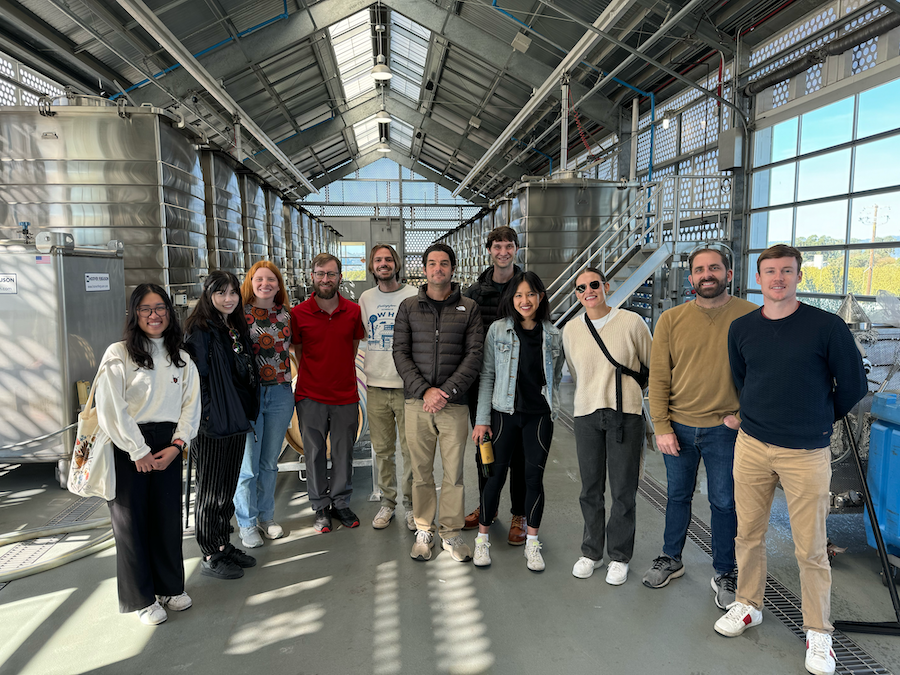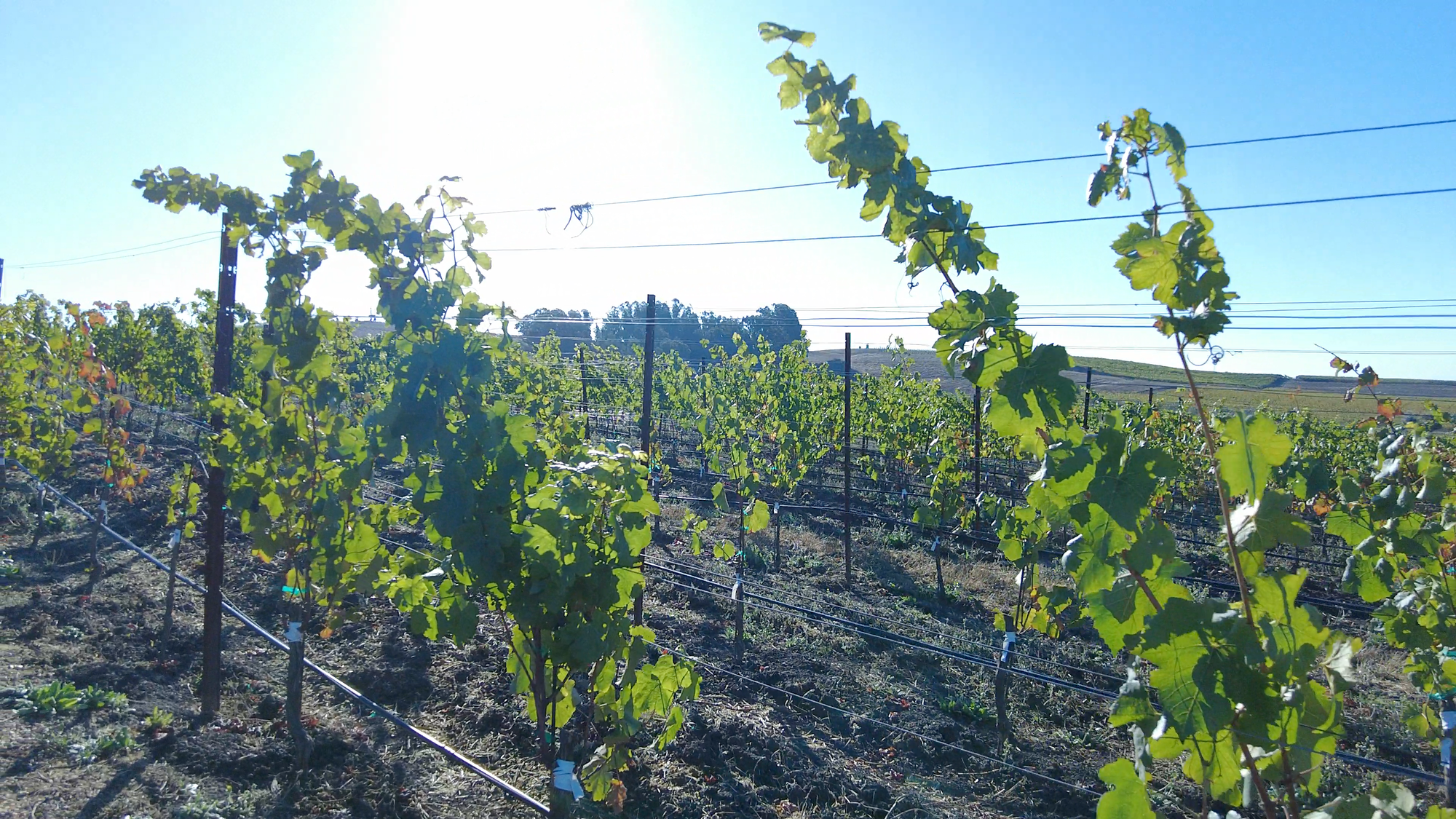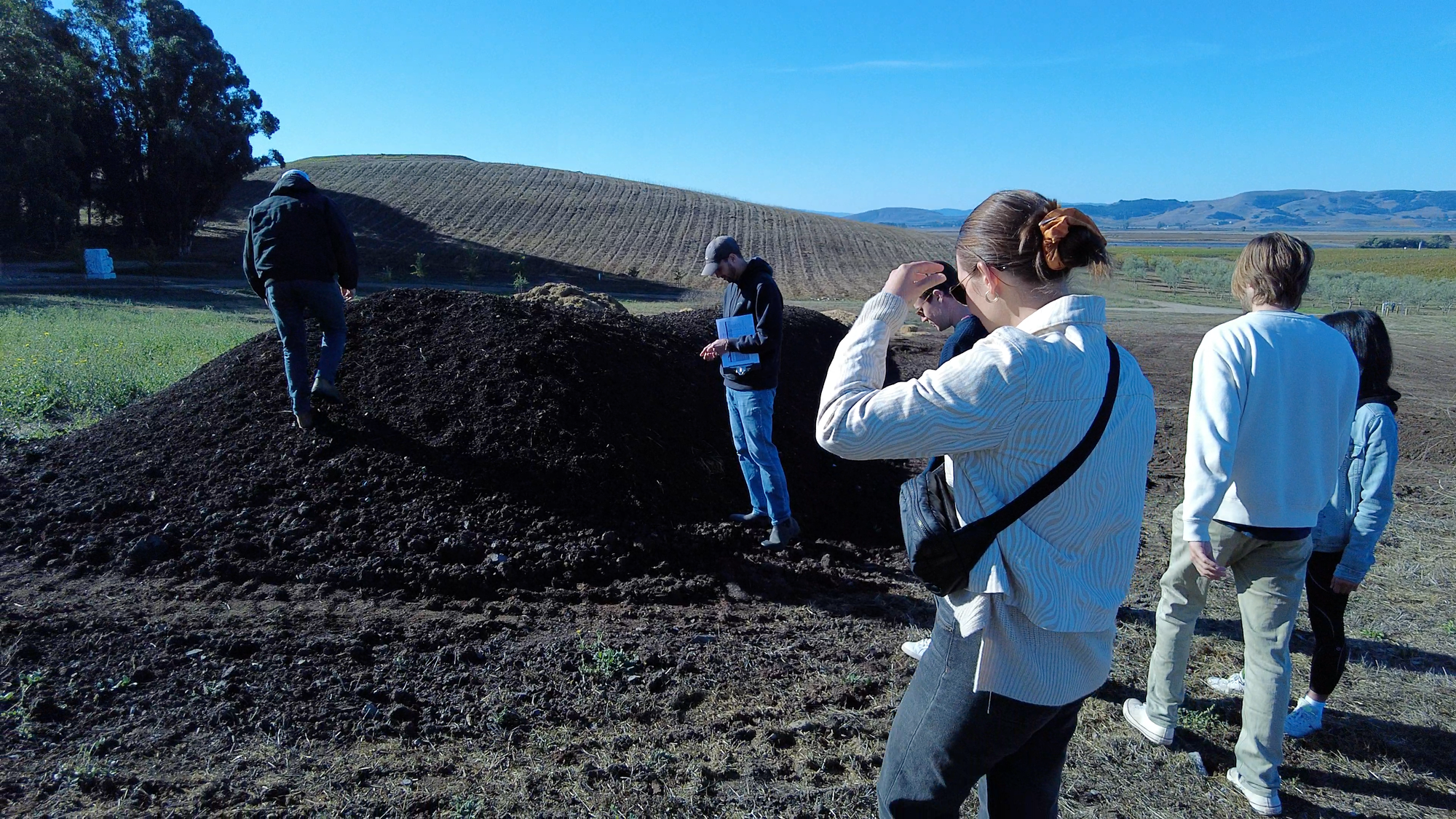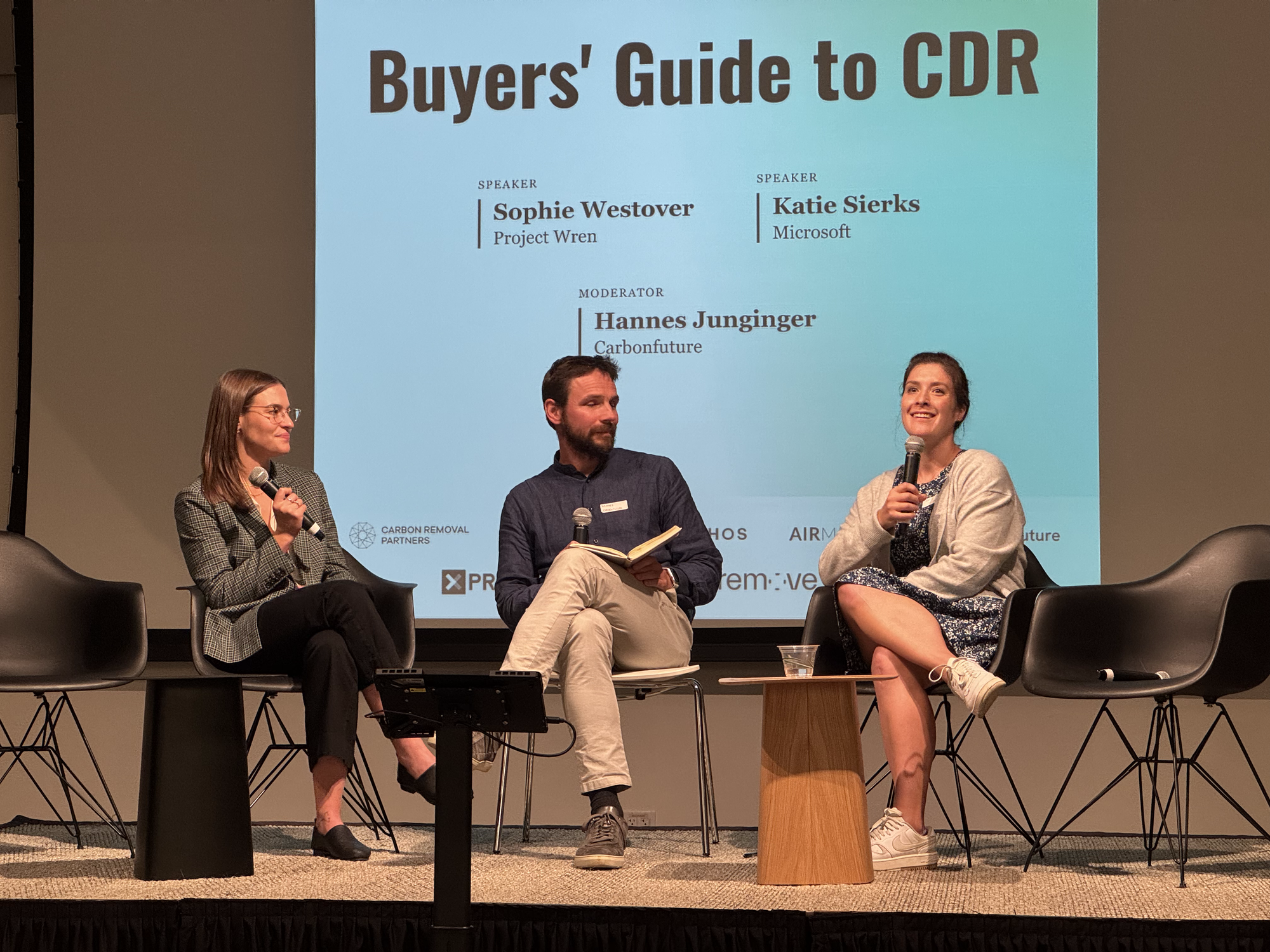Sequestering 12,000 tons of CO₂e per year and seeing it in action
Our project partner is exploring new biochar applications, and Wren took a field trip to a vineyard to see its effects.

Just the gist
Short on time? Here’s what you need to know for this update:
- 🔨 Seeding trials and treating landfills — Our project partner is exploring biochar applications, from improving crop yield to reducing landfill emissions
- 🍇 Visiting a biochar-nurtured vineyard — The Wren team toured the Donum Estate in California to see the effects of our partner’s biochar first-hand
- 📢 Championing carbon removal on a global stage — Wren joined a panel discussion with Carbonfuture and Microsoft and received high praise for our community’s pioneering support of biochar
For more project updates, follow Wren on Twitter and Instagram.
Seeding trials and stabilizing landfills
Our Biochar in California project is now producing about 1,082 metric tons of biochar each month at their main facility in Humboldt and sequestering over 12,000 tCO₂e per year. That’s like taking 2,600 gas-powered cars off the road for a year.
Biochar permanently keeps carbon dioxide out of the air and provides co-benefits, such as reducing biomass waste and enriching soil. Our project partners are currently running trials on how biochar affects the growth of wine grapes, and successful outcomes could encourage farmers to use biochar to boost soil health and crop quality while also helping the environment.

While biochar is most commonly applied to soil, our partners will soon be using biochar in a new way: as a binding agent for landfill waste! Mixing in biochar helps stabilize waste, reducing the potential for dangerous leachate to contaminate groundwater. It also has the potential to significantly reduce the amount of methane gas that escapes into the atmosphere.
Methane is many times more potent than CO₂ when it comes to trapping heat in the atmosphere, so this new use of biochar could be a game changer. We’re excited to see what happens next.
Visiting a biochar-nurtured vineyard
Last month, the Wren team took a field trip to the Donum Estate, a vineyard that uses biochar from our Biochar in California partners—Pacific Biochar. They pride themselves in their sustainable, regenerative farming practices, including biochar application. The Donum Estate and Pacific Biochar have been working together since 2019, and the vineyard has transitioned from traditional farming to a planet-friendly strategy in just the last four years.
Standing between the Donum Estate and a neighboring vineyard, we could see their radically different philosophies in action. The other vineyard’s ground was visibly dry, packed down, and barren, and we were told that they used more water and pesticides alongside traditional farming practices. The Donum Estate side, however, had visibly more life and moisture in the soil and a long, healthy harvest. This was thanks to a combination of sustainable practices, such as natural pest deterrents (like chickens and sheep!) and our partners’ biochar.
By using biochar and other environmentally friendly farming methods, the Donum Estate has managed to cut their water use by 4 times. This is important not only to save water but also to set an example in California, a dry state grappling with droughts.

Here’s a note from Mimi, one of Wren’s co-founders:
“It was fascinating to hear from Tony, Donum’s farm manager, about the cascading effects of applying biochar. Donum’s transition from traditional farming to fully organic regenerative agriculture started with the implementation of composting on-site. Then quickly followed co-composting with biochar, adding on no till farming, no herbicides, and a full farm carbon plan that focused on increasing soil health while reducing unnecessary diesel use and saving water. It was a clear example of how taking one small step inevitably leads to taking more steps in that direction, and a reminder that the same is true about individual, community, and corporate-level action—we all need to start somewhere, and for farming, biochar can be that catalyst.”

And here are some thoughts from Wren co-founder, Ben:
“Visiting a project in-person is such a special experience. We get to see the positive outcomes of a carbon project that thousands of Wren members have helped fund. It's one thing to see photos and read over documents and data about a project like Pacific Biochar, but to hold the biochar in your hands, and to see it spread across acres of vineyards, there's nothing like it!”
Championing carbon removal on a global stage
Earlier this week, Wren attended the Carbon Dioxide Removal (CDR) San Francisco conference with other global leaders in this space.
Our climate portfolio manager—Sophie Westover—joined a panel discussion with Hannes Junginger from Carbonfuture and Katie Sierks from Microsoft to explore the opportunities and hurdles faced by early buyers of carbon dioxide removals, and give prospective buyers the information and confidence to start funding these initiatives.

During the conversation, Hannes complimented Wren for our early and substantial support of Pacific Biochar—which has helped push the entire biochar removal space forward. He later shared this takeaway on Linkedin:
“📢 Climate action by individuals has impact, next to leading corporate action. It was an honour to moderate a fireside chat with Katie Sierks from the leading CDR buyer Microsoft and Sophie Westover from Wren. We learned that with the help of Wren's B2C solution, individuals have supported innovative #CDR projects like Pacific Biochar to thrive and scale up to volumes that are relevant for the leading buyers like Microsoft.”
Hannes Junginger, CEO & Co-founder of carbonfuture GmbH
Biochar in California is just one of the carbon removal projects we support at Wren, and we’re proud to be accelerating these critical technologies. You can dive deeper into this topic on our Trailblazer portfolio page.
That's all for this update! As always, thank you for your support.
— the Wren team 🧡

